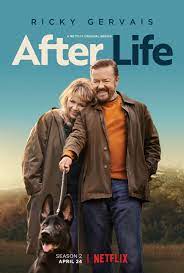
It’s on everybody’s lips: These are dark days, especially between the pandemic and politics. I’m of two minds, torn between the angel on one shoulder and the devil on the other. One preaches activism, the other isolation. One says get more involved. The other says quit while you’re behind. Trouble is, I can’t tell which is advocating which.
By way of explanation, here’s a little context: Thirty years ago, my wife and I rented a cottage on a lake with our young children. A pine cabin, it stood on concrete blocks and was equipped with electricity and running water thanks to a pump drawing water from the lake.
When vacationing there, we did not bother with a television or newspapers. For two weeks, we simply read books, played cards and board games, had conversations, swam in the water, dozed on the sun-drenched dock, and listened to the occasional Red Sox game on AM radio.
In effect, there was no “out there.” The world as we knew it was put on hold. Instead, it simply consisted of lake, woods, and a cabin seemingly ignorant of time. No politics. No crime. No national or international news. This isolation was a balm for the soul – and what’s good for the soul is good for the body.
If stress is so bad for us, it can be argued that turning in and logging off is a great strategy for healing and staying healthy. Thoreau, I’m sure, would approve. Yet for all his walks in the woods and stays in a cabin by Walden, Thoreau was also an activist fighting hard for the abolitionist cause and a man who spent time in jail for civil disobedience.
That’s why, as soon as I get comfortable with the warm blanket of escapism, I wonder about being a better Citizen of the World. Or, even more difficult, about my own country. If the Republic we all grew up pledging allegiance to is in trouble, don’t we owe it to the Founding Fathers to get involved? To speak up? To do something about saving it before all hell breaks loose and we fall into “soft fascism” á la Hungary – and all because of one man’s untreated psychological problems and a cable “news” channel that is doing Russia’s dirty work by spreading misinformation and division (thank you, Comrade Carlson)?
It’s questions like this that invite cloud cover over memories of those halcyon days at the lake. On one side I get an earful: Wouldn’t it look selfish and foolish to make like an ostrich and bury your head in the sand just because you just can’t deal with it anymore?
Then, in the other ear, another: If Covid wars, culture wars, and history repeating itself to the refrain of the 1930’s are only shortening your life, don’t you owe it to yourself to pull back from it all and breathe, Zen-like?
I don’t have any answers. I hear both figures on both shoulders, but sometimes it’s unclear who has the halo and who has the pitchfork, who advocates for the light and who for the dark. Nothing is obvious, and on any given day, my thoughts lean gray as dawn and dusk.
Here’s a Maggie Smith poem that speaks, in its own poetic way, to our assumptions about right and wrong being as easy as light and dark. In a way, it reminds me of the light and dark plying my ears!
How Dark the Beginning
All we ever talk of is light—
let there be light, there was light then,
good light—but what I consider
dawn is darker than all that.
So many hours between the day
receding and what we recognize
as morning, the sun cresting
like a wave that won’t break
over us—as if light were protective,
as if no hearts were flayed,
no bodies broken on a day
like today. In any film,
the sunrise tells us everything
will be all right. Danger wouldn’t
dare show up now, dragging
its shadow across the screen.
We talk so much of light, please
let me speak on behalf
of the good dark. Let us
talk more of how dark
the beginning of a day is.
One of my favorite phrases from the Bible is “Through a glass darkly.” These days, I see a lot of things “through a glass darkly” because so much is sinister in a déjà vu kind of way.
Is it selfish to brighten my own life? Might I then be accused of contributing to the dark forces by failing to assist the various causes for good?
Smith’s poem seems to speak to things that have crawled out of dark sewers and into the light of day. They are the new normal, and they are decidedly encouraged by each other and by their newfound freedom to operate with impunity in fresh air and sunlight. They see each other and are emboldened by each other.
That may be far from Smith’s intent, but the reader-writer compact tells us that there’s a gray area between light and dark, not only come dawn and dusk, but come our daily deliberations over how much or little to be agents of change — and at what cost.
A Word to the Wise: Jim Harrison Goes Aphoristic

I am wending my way through the late Jim Harrison’s Complete Poems – almost 900 pages of them. A prolific writer, Harrison wrote before his death, “This book is the portion of my life that means the most to me. I’ve written a goodly number of novels and novellas but they sometimes strike me as extra, burly flesh on the true bones of my life, though a few of them approach some of the conditions of poetry.”
Here are a few of the aphoristic stanzas from one of the books, Braided Creek, included in this collection:
All those years
I had in my pocket.
I spent them,
nickel-and-dime.
All I want to be
is a thousand blackbirds
bursting from a tree,
seeding the sky.
On every topographic map,
the fingerprints of God.
The biomass of ants,
their total weight on earth,
exceeds our own.
They welcome us to their world
of small homes, hard work, big women.
When Time picks apples,
it eats them with the yellow teeth
of bees.
I might have been a welder,
kneeling at a fountain of sparks
in my mask of stars
Midday silence is different
from nighttime silence.
I can’t tell you how.
Between the four pads
of a dog’s foot,
the fragrance of grass.
What if everyone you loved
were still alive? That’s the province
of the young, who don’t know it.
I’m sixty-two and can drop dead
at any moment. Thinking this in August
I kissed the river’s cold moving lips.
A welcome mat of moonlight
on the floor. Wipe your feet
before getting into bed.
I was born a baby.
What has been
added?
Treasure what you find
already in your pocket, friend.
Parlez-Vous English?

Thanks to Netflix, I’ve learned that I don’t understand English as well as I thought. I’ve seen more than one British-based show, but the one that’s taking it out of me is the darker-than-dark After Life, starring Ricky Gervais. I admit as much here: At times I’m completely lost and only picking up 40% of what’s being said. Maybe it’s English I speak well and British that gives me fits. Cornwallis’s revenge? I can hear him now: “Tea party that, mate!”
You Carry Your Breath Everywhere, So Why Ignore It?

Recently I’ve been making like George Harrison (one of two departed Beatles) by getting into a book about Indian spiritualism. As a break from reading Fyodor Dostoevsky’s ponderous Brothers Karamazov, I picked up Jay Shetty’s Think Like a Monk.
Turns out, monk-like thoughts suit me well. Unlike most self-help books, this one didn’t come across as so much reheated claptrap. Shetty, a British-born Indian, disappointed his parents by passing on becoming a lawyer or doctor and instead flying to India to join an ashram. There he learned a lot about hardship and spiritualism thanks to one of the oldest civilizations in the world.
Unfortunately, health concerns eventually forced him back to England, where he decided to parlay all he’d learned about himself from various holy men by writing a book. The spin? He shows how a few practices and a more Eastern mindset can be put to good effect in the hustle of modern Western life. Reading it, you realize just how much room for improvement there is when it comes to your spiritual side. First and foremost is dealing with the ego.
Sound easy? Listen again.
Into the Fray on Valentine’s Day

February 14th has never been my favorite day. I mean, really. A day to prove your love to someone? Shouldn’t that be every day? And to make matters worse, there’s the flower shortage to confound last-minute shoppers (the ones carrying Y chromosomes, typically). Be prepared to say it with chocolates, gentlemen. Or a backrub. Or a Covid-free restaurant (I’m almost sure one’s out there).
Into clever word-play, maybe? Try saying it with flour!
Or you can do what I do. Take a page out of Hallmark’s book (and bottom line) by creating your own card. My wife has saved them since time immemorial (also known as “1982”). Not sure what will become of them when the prefix “im-” invades our “permanence,” but that’s OK. I won’t much care by then.
